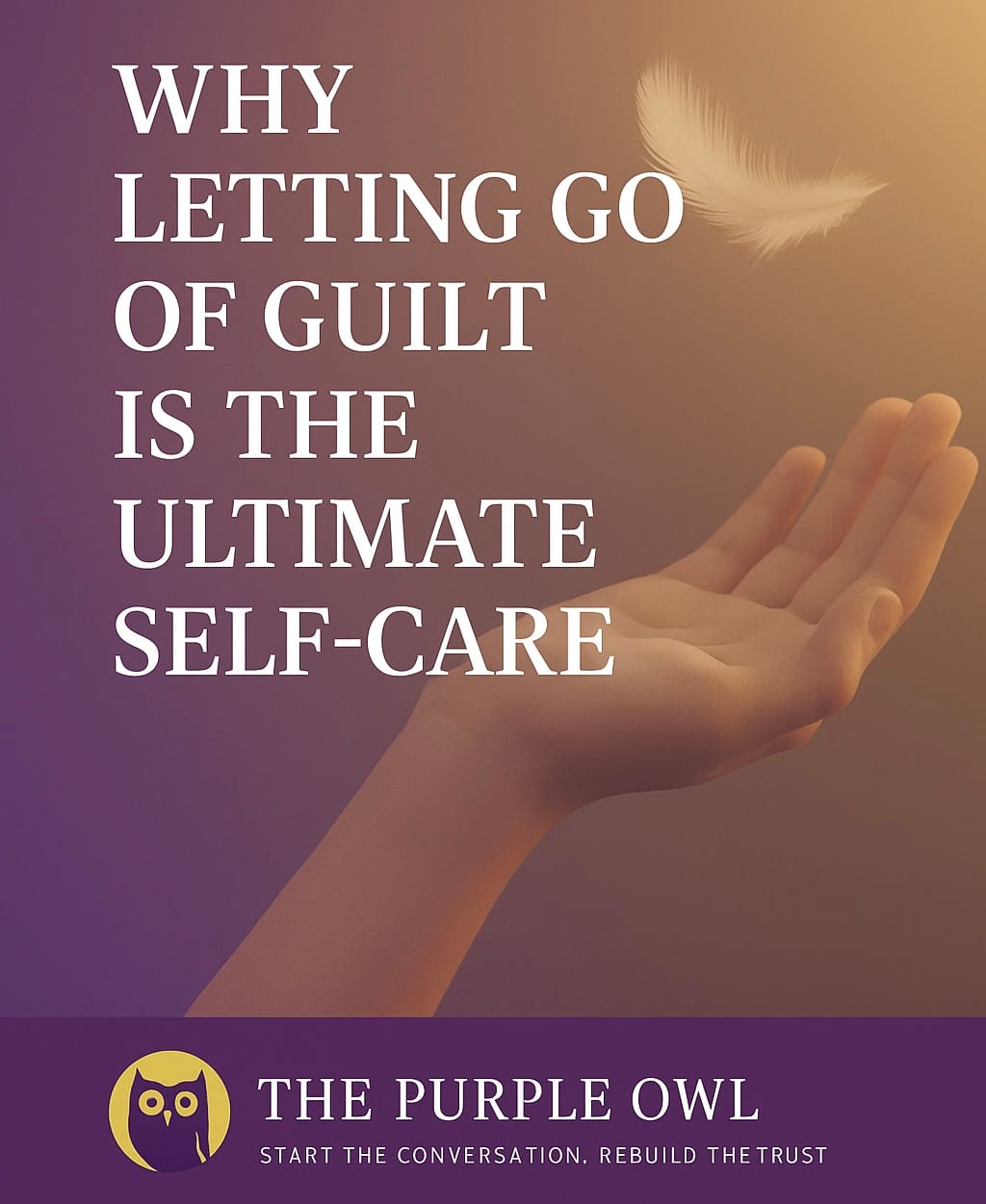Letting Go of Guilt is the Ultimate Self-Care
Letting go of guilt is essential self-care. Learn how guilt drains your energy, why it's not yours to carry, and how to release it without shame.

What Guilt Really Is (and Where It Comes From)
Guilt is often learned. It can come from family expectations, social conditioning, workplace pressure, or unspoken rules about who we’re supposed to be. Many of us were taught that being “good” means being self-sacrificing and being available at all times. I believe we all struggle with some form of guilt when it comes to productivity. Especially in those of us with ADHD.
The problem is that guilt doesn’t actually guide us toward healthier choices. Instead, it keeps us stuck in cycles of giving too much or getting burnt out. Or worse even... building resentment. When guilt becomes the primary motivator, self-care starts to feel wrong instead of restorative.
How Guilt Interferes With Self-Care
Self-care is supposed to replenish you. Guilt does the opposite.
When guilt is present:
- Rest feels unearned
- Boundaries feel selfish
- Saying no feels dangerous
- Taking time for yourself feels indulgent
Even when you do take a break, guilt can prevent your nervous system from actually relaxing. Your body may stop, but your mind stays tense. Over time, this creates exhaustion that no amount of “self-care” can fix.
Letting go of guilt is often the missing step people overlook when they say, “Self-care doesn’t work for me.”
A Personal Relationship With Guilt
For a long time, I believed guilt was just part of being responsible. If I wasn’t feeling guilty, I assumed I wasn’t doing enough. I thought guilt kept me accountable.
What I eventually realized is that guilt was keeping me stuck. It kept me pushing past my limits. It kept me questioning my worth. And it kept me from fully resting, even when I desperately needed it.
Letting go of guilt didn’t happen all at once. It started with noticing how often guilt showed up, and asking whether it actually belonged to me.
Boundaries Are the Antidote to Guilt
One of the most effective ways to release guilt is through boundaries.
Boundaries clarify what you are responsible for and what you are not. They help separate your needs from other people’s expectations. When boundaries are clear, guilt loses its grip.
This doesn’t mean boundaries are always comfortable. Guilt often shows up first when you start setting them. But that discomfort doesn’t mean you’re doing something wrong. It usually means you’re doing something new.
Over time, boundaries create safety, trust, and a sense of internal stability that guilt never could.
A Simple Practice for Letting Go of Guilt
When guilt shows up, try asking yourself:
- Who taught me this expectation?
- What am I afraid will happen if I don’t comply?
- Is this guilt protecting me, or draining me?
You don’t need to judge the answer. Awareness alone begins to loosen guilt’s hold. Letting go of guilt is a practice, not a personality trait you either have or don’t.
Why Letting Go of Guilt Is an Act of Care
Letting go of guilt is not about ignoring responsibility. It’s about choosing self-respect over self-punishment. It’s about allowing rest, boundaries, and care to exist without conditions attached.
When guilt no longer runs the show, self-care becomes something you do because you deserve it, not because you’ve finally earned it.
And that shift changes everything.
If this resonated with you, you might also like reading about how boundaries and burnout are connected, or you can join the Hoot ’n’ Holler to get future posts delivered straight to your inbox.
💜 My Favorite Tools for Letting Go of Guilt
If you’re ready to release guilt and create more space for peace, here are a few tools I love (affiliate links):
- ✍️ Guided Journal for Reflection – A safe place to brain dump, process guilt, and track progress.
- 🧹 Simple Cleaning Planner – Helps take the mental load off housework so I can focus on rest without the guilt.
- 📖 Set Boundaries, Find Peace – A must-read for learning how to build boundaries without apology.
- 🌙 Self-Care Comforts – Whether it’s a weighted blanket, herbal tea, or a candle, small rituals remind me rest is productive.
✨ These are tools I’ve personally found helpful. If you choose to purchase through these links, I may earn a small commission at no extra cost to you.
👉 Want more messy, real-talk growth tips? Visit The Purple Owl and join the conversation. Because healing doesn’t have to be perfect—it just has to be honest.
